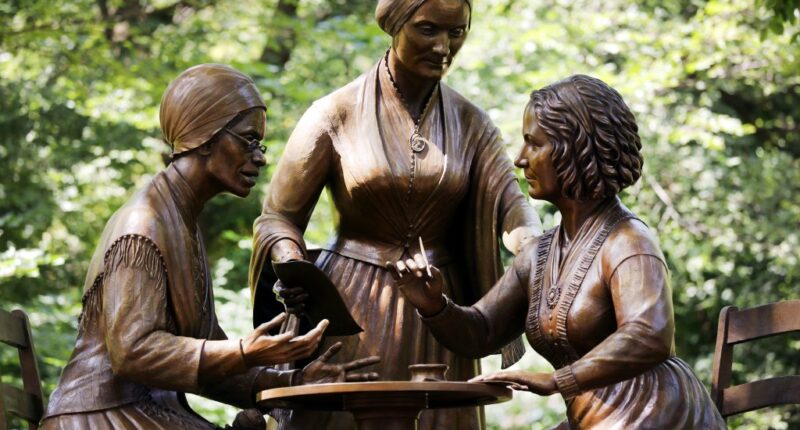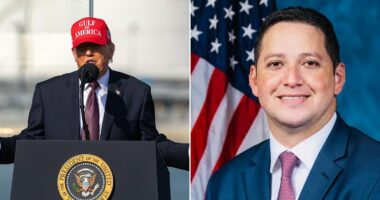Share this @internewscast.com

We, the descendants of the suffragist movement, express our opposition to the SAVE Act (S. 128), which was passed by the House and is awaiting review in the Senate. Karen and Jennifer, who share lineage with Susan B. Anthony and Elizabeth Cady Stanton, respectively, deeply understand the legacy of the suffrage movement and the continuous fight for women’s voting rights.
The SAVE Act claims to prevent illegal immigrants from voting by amending the National Voter Registration Act of 1993. It mandates that individuals present proof of citizenship, such as a birth certificate or a U.S. passport, when moving, changing party affiliation, undergoing a name change, or registering to vote for the first time. This documentation would need to be shown in person to the designated election official before the registration deadline.
We contend that this measure will disproportionately impact women’s voting rights. As it currently stands, the SAVE Act places an undue burden on women by necessitating in-person proof of citizenship when registering anew or updating their registration.
Furthermore, if a woman’s name differs from that on the original documents, she would need to present in-person documentation like a divorce decree, a marriage certificate, or a name change court order. The challenge of recovering original documents and obtaining duplicates through the court system poses unfair disadvantages for women, compounded by the associated financial barriers.
Women residing in rural areas, the elderly, those with disabilities, or individuals with limited resources would bear the brunt of these voting obstacles, which are not currently in place.
This legislation not only harms women’s voting rights but is also unnecessary. According to the Brennan Center for Justice, merely 30 instances of noncitizen voting were identified among the 23.5 million votes reviewed from the 2016 election, representing just 0.0001% of the votes in areas with large immigrant populations. Thus, this bill is redundant in addressing such an insignificant number of voting infractions and will inadvertently disenfranchise many legitimate female voters.
Defense Secretary Pete Hegseth recently reposted and praised a video from a pastor who does not believe that women should be allowed to vote. The SAVE Act takes steps towards this ideology by limiting voting access to women and by creating needless barriers. If enacted, these measures would return women to a time when their rights are restricted and their voices silenced.
Our ancestors fought tirelessly for decades for the rights of women so that they would have the ability to own property, divorce abusive spouses, to obtain custody of their children, among other rights that were not previously granted to them.
As the ability to vote is the gateway to other rights, silencing even some of our voices through unnecessary barriers is one of the first steps towards returning us to this dark era.
Most women today can only remember a time when we had the right to have our own credit cards, own land, have custody of our children, and to vote. We must not take these rights for granted, as they are slowly eroded under the guise of preventing illegal votes, a problem which is far less common than portrayed, and could be addressed through other measures that do not prevent some women from exercising their constitutional rights. We must not return to this dark era.
It is imperative that Democratic, Republican, and independent women stand against the SAVE Act in order to preserve our hard-won rights that took almost 72 years to obtain. We must not lose these cherished rights through gradualistic measures, which slowly erode our ability to have our voices heard.
When fewer women are able to vote, other issues that predominantly affect women will also be impacted. The ripple effects of this bill will extend to other legislation as our voices become silenced and our voting numbers diminish. It is essential that we remember our heritage of strong, hard-working women who refused to let their voices be muted, and as a result, shaped our modern world. We must not step back into a time when these rights were not available to all women, regardless of their background or social status.
Reach out to your senators, telling them that the voices of all women will not be silenced, and to vote down this damaging legislation.
Benedict, a retired office administrator and paralegal, is an eighth cousin of Susan B. Anthony. Stanton, a lecturer of analytical writing at California State University, is a fifth cousin of Elizabeth Cady Stanton.

















